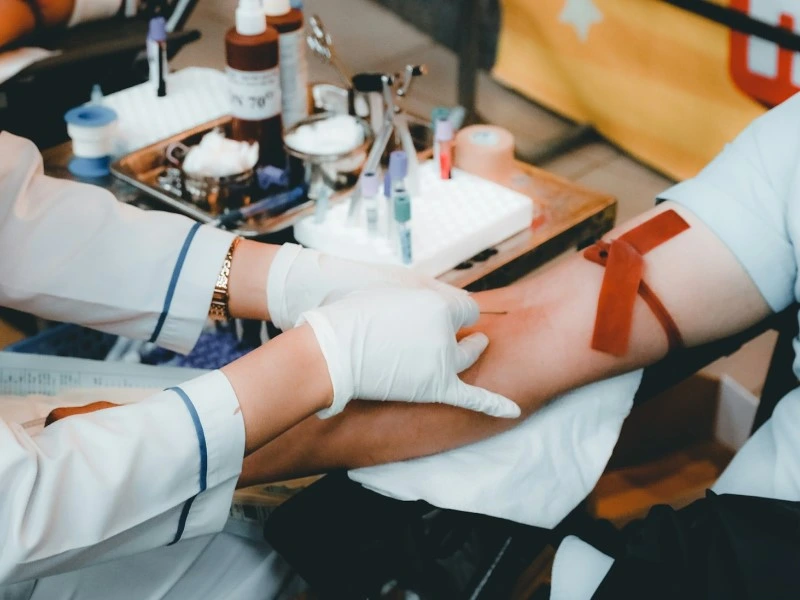

My name is Katie, and I have been a nurse for 10 years. My healthcare journey began in 2013 when I started as a CNA, eventually progressing through school to achieve my BSN. I specialize in Emergency Medicine and have worked as a Travel ER RN since the COVID-19 pandemic. Nursing has been life-changing for me. I strive to be the good in difficult situations and provide the best care possible to my patients.
Knowing the employment situation is crucial if phlebotomy is your professional route. As the need for qualified phlebotomists is rising, this is a great choice for anyone hoping to work in the medical industry. Here’s what you should know about industry trends, job opportunities, and what to expect in this essential role.

In healthcare, phlebotomists are absolutely vital and their knowledge is constantly in demand. Blood tests, transfusions, and donations are more needed given an aging population and more attention on diagnostics. Trained experts are continuously in demand at hospitals, diagnostic labs, clinics, and blood donation centers to manage their obligations.
The U.S. Bureau of Labor Statistics projects that phlebotomist employment will rise by 10% over the next ten years—faster than the average for other professions. Medical technology’s developments and increasing focus on preventative healthcare drive this expansion.
Because phlebotomy allows for scheduling flexibility, it appeals to people who must juggle employment and other obligations. Full-time, part-time, or per diem possibilities are available for many occupations. Evening, weekend, or overnight hours may be necessary for hospitals and labs; shift differentials might offer flexibility or extra revenue.
While phlebotomy is often an entry-level position, it can also serve as a stepping stone to other roles in healthcare. Some phlebotomists continue on to obtain credentials in particular fields, like advanced laboratory methods or pediatric phlebotomy. Others use their skills as a stepping stone to move into lab technology, nursing, or other medical specialties.
Phlebotomy offers competitive wages for an entry-level healthcare position. Phlebotomists typically make $37,000 a year, though this might vary depending on their area, level of expertise, and place of employment. In addition, a lot of firms provide paid time off, retirement programs, and health insurance.
While phlebotomy offers many opportunities, it’s not without challenges. Because you’ll frequently be standing for extended amounts of time, the job might be physically taxing. You can also come across hard individuals, such as those with problematic veins or needle fear. These difficulties can be successfully handled with the correct instruction and a composed sympathetic demeanor.
Phlebotomy could be a great fit if you’re looking for a stable job with growth opportunities and a chance to make a difference in healthcare. Technical expertise, patient connection, and the fulfillment of helping develop life-saving diagnoses and treatments are all uniquely balanced in this discipline.
Start your journey by researching accredited phlebotomy programs and taking the first steps toward a fulfilling role in healthcare.
Ready to kickstart your healthcare journey?
Fill out the form above, and let CNA Class Guide match you with the best CNA training programs in your area!